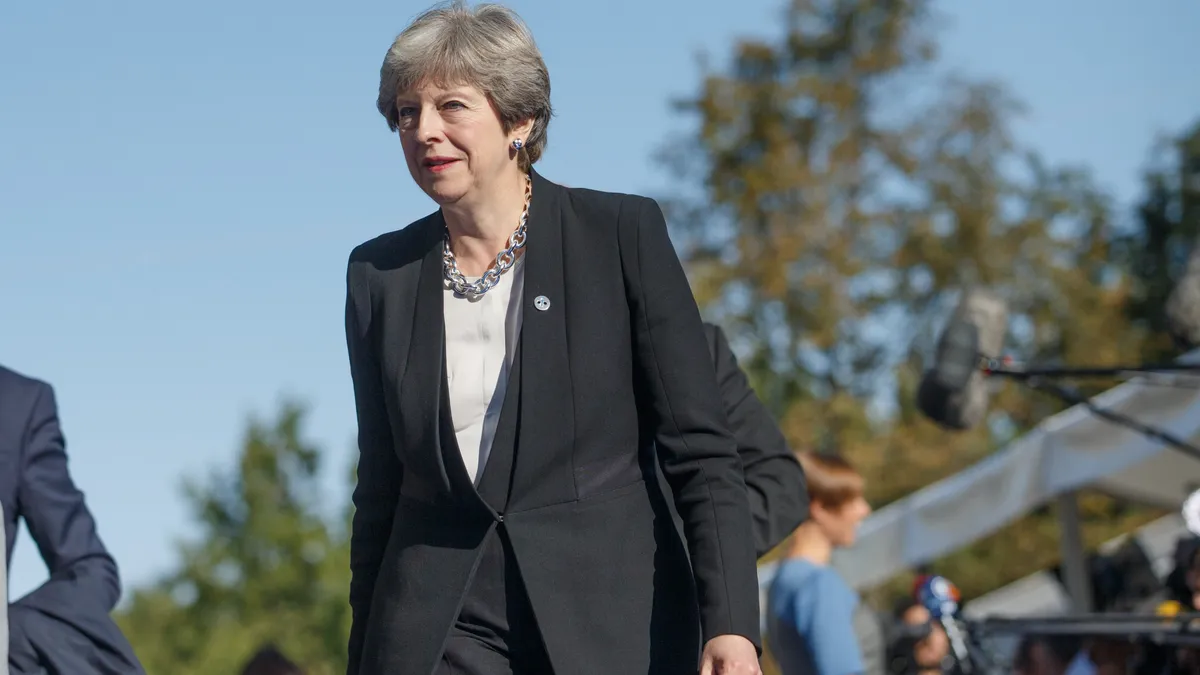Dive Brief:
- Parliament today will decide whether it wants to exit the European Union without a plan, after it rejected Prime Minister Theresa May's Brexit proposal Tuesday with a vote of 391 to 242. Many business leaders have spoken about the potentially disastrous consequences of a no-deal Brexit.
- In preparation for today's vote, the government published details on how the government would proceed should Parliament decide to leave without an agreement. The plans cover how to avoid a hard border with Ireland and what tariffs would take effect.
- If Parliament decides it does not want to leave without a plan then another vote will be held on Thursday to decide if the March 29 deadline for withdrawing from the EU should be pushed back.
Dive Insight:
"But let me be clear," May said after the vote tally was read to Members of Parliament in the Commons Chamber. "Voting against leaving without a deal and for an extension does not solve the problems we face. The EU will want to know what use we mean to make of such an extension."
May laid out three options for proceeding if the U.K. decides against leaving without a deal:
- Revoke Article 50, the legal framework that allows for EU members to withdraw.
- Hold a second referendum.
- Leave with a deal but not this deal.
The temporary tariff guidelines, which would go into place if there is a no-deal Brexit, published by the British government today, include increases to a number of items including beef, lamb, pork, poultry and dairy.
"If we leave without a deal, we will set the majority of our import tariffs to zero, whilst maintaining tariffs for the most sensitive industries," Trade Policy Minister George Hollingbery said in a statement. "This balanced approach will help to support British jobs and avoid potential price spikes that would hit the poorest households the hardest."
Tariffs on finished vehicles would be retained, though "car makers relying on EU supply chains would not face additional tariffs on car parts imported from the EU to prevent disruption to supply chains," the government noted. Automakers have been vocal critics of a no-deal Brexit, saying it would hurt their business.
These temporary tariff guidelines could stay in place for as long as a year as Parliament figures out a tariff structure it is willing to approve.
The guidelines would not apply to goods passing from Ireland into Northern Ireland. The U.K. said it will "not introduce any new checks or controls on goods" moving between these two countries. The U.K. will work with the EU and Ireland on longer-term plans to avoid a hard border.
"The measures announced today recognise the unique circumstances of Northern Ireland," Secretary of State for Northern Ireland Karen Bradley said in a statement. "These arrangements can only be temporary and short-term."














